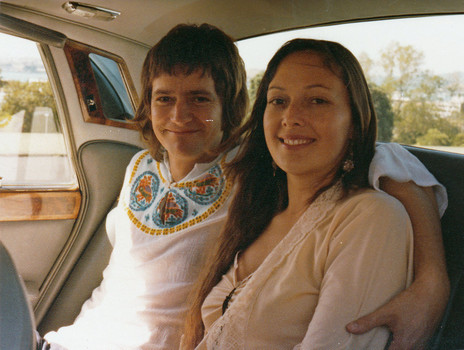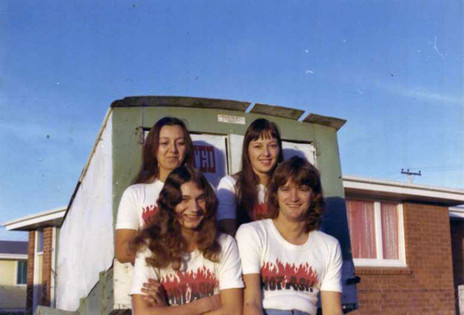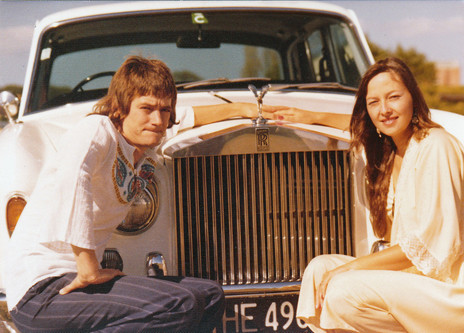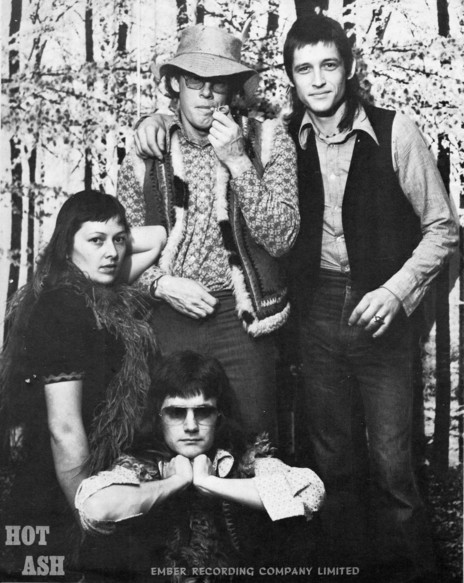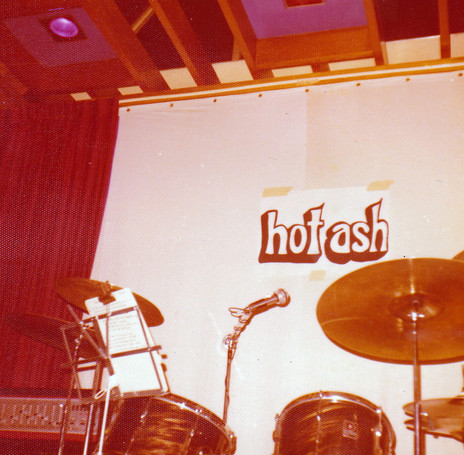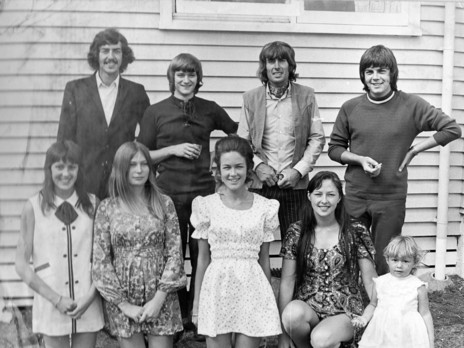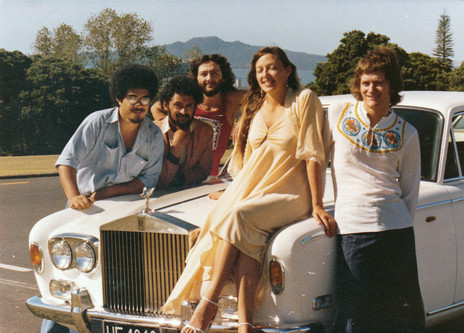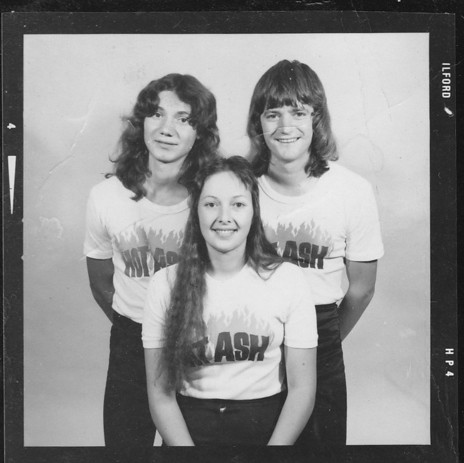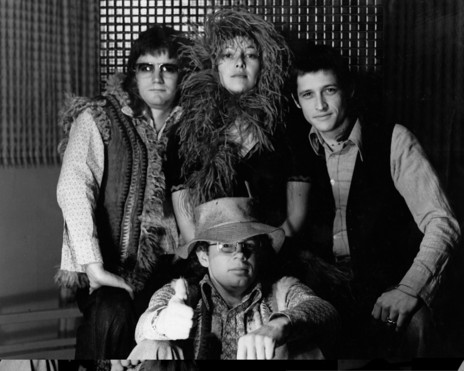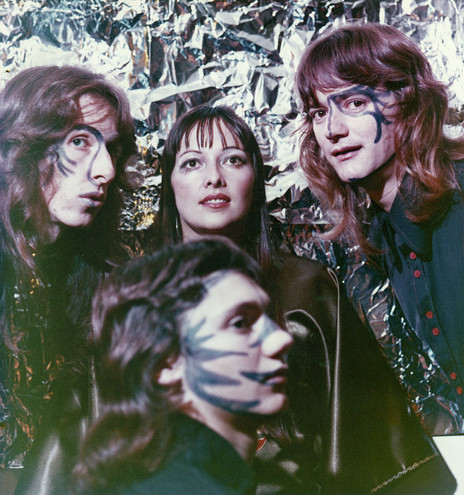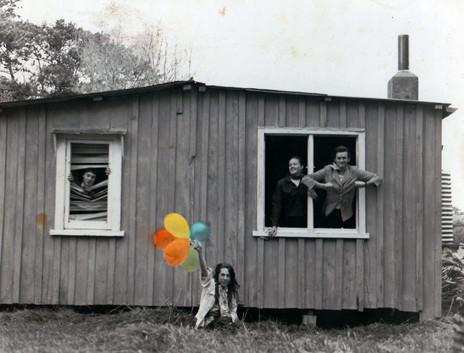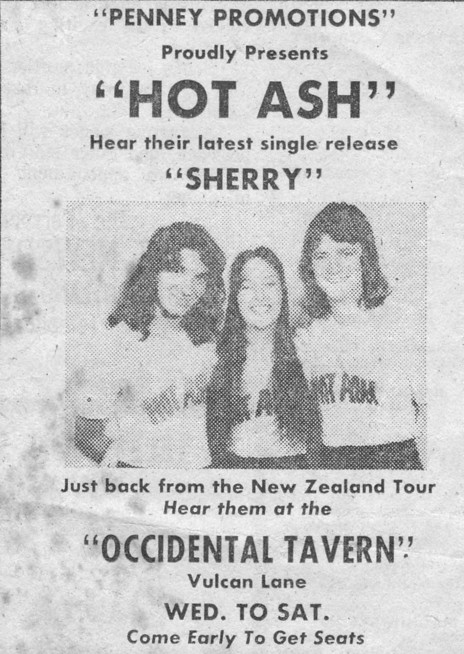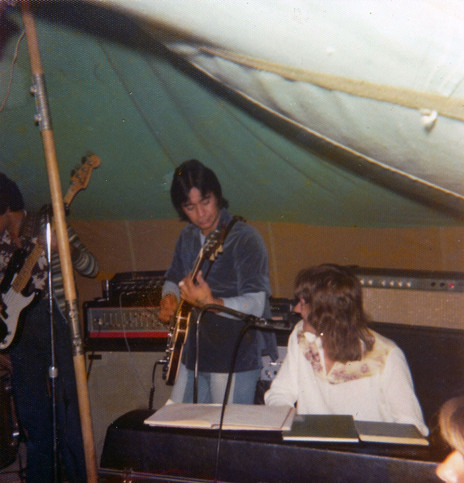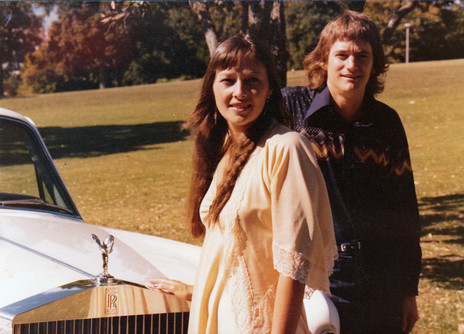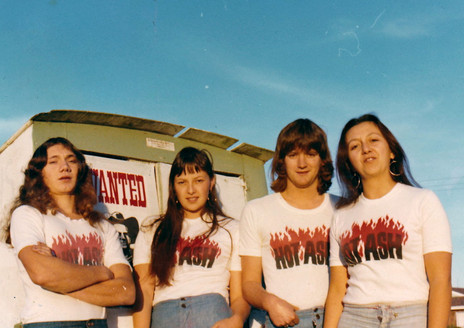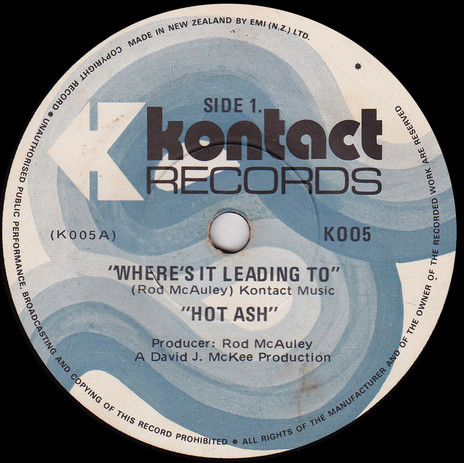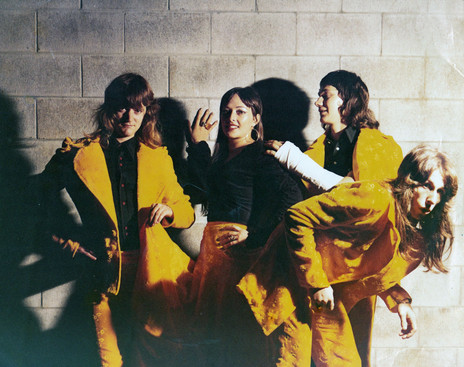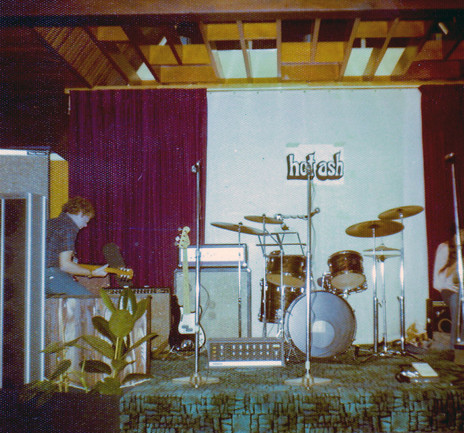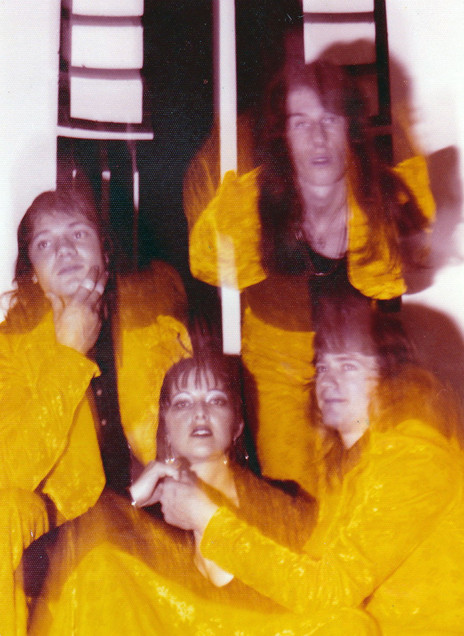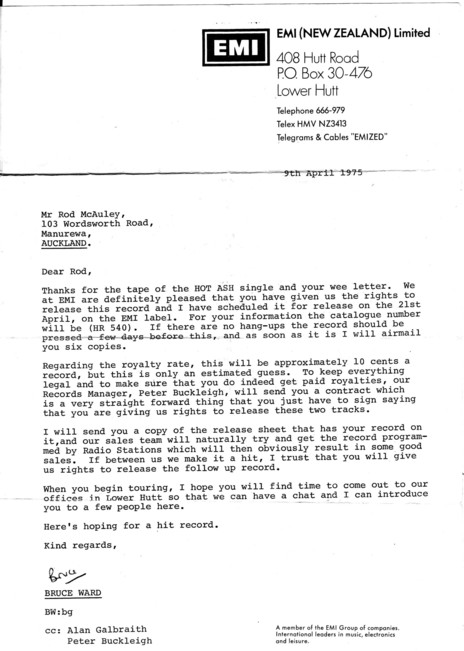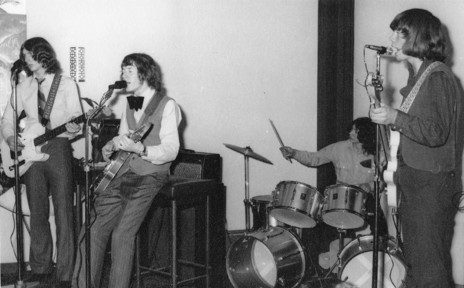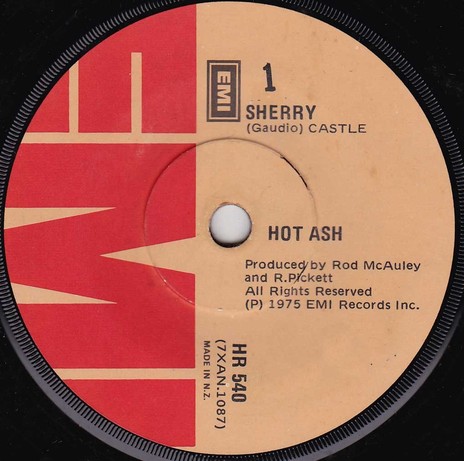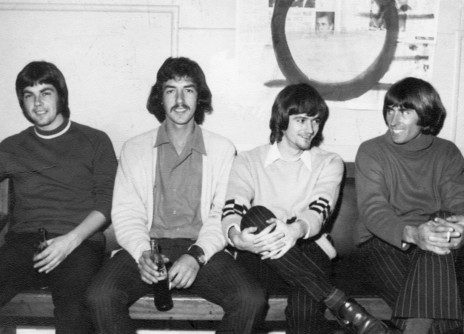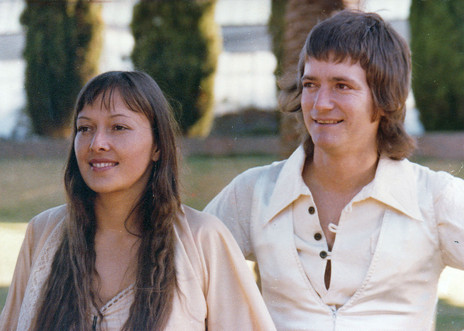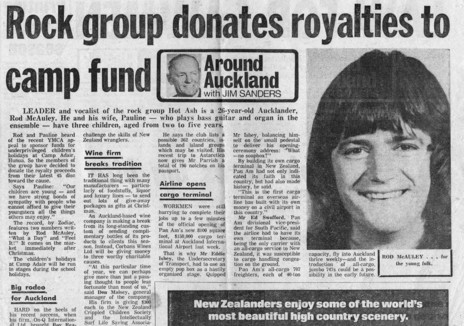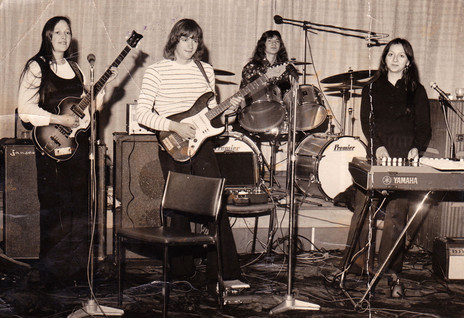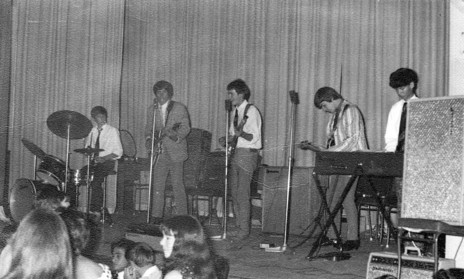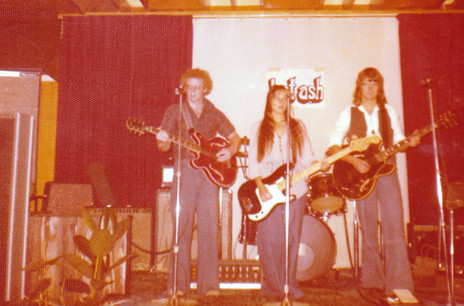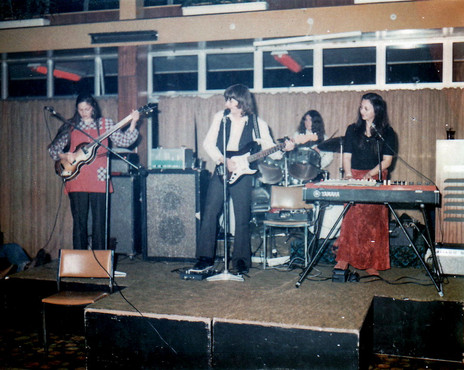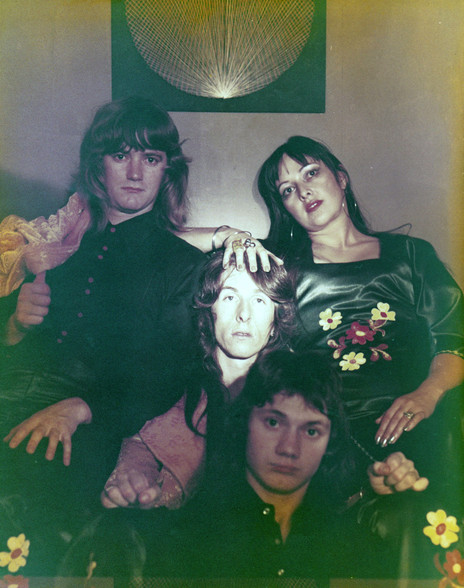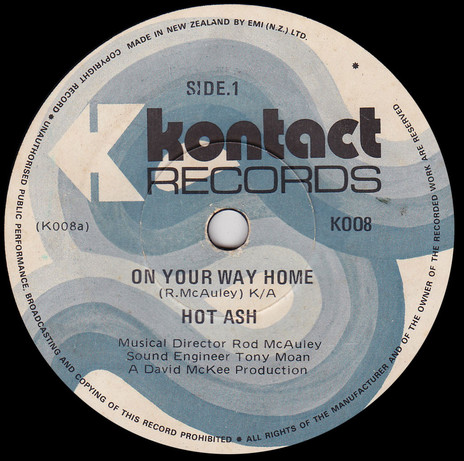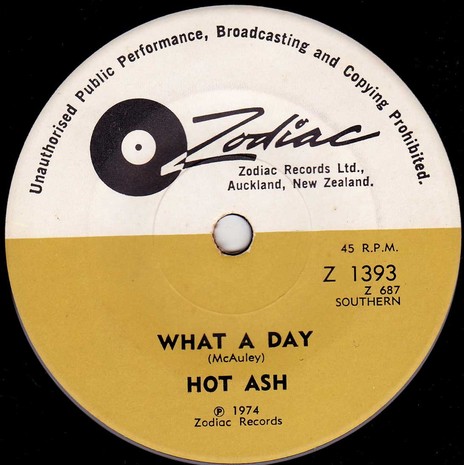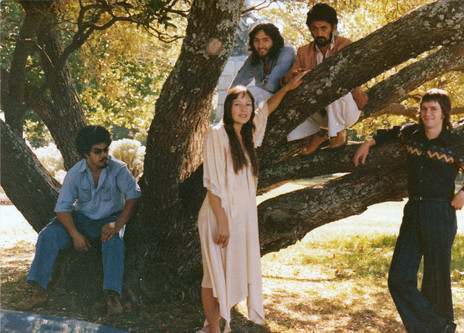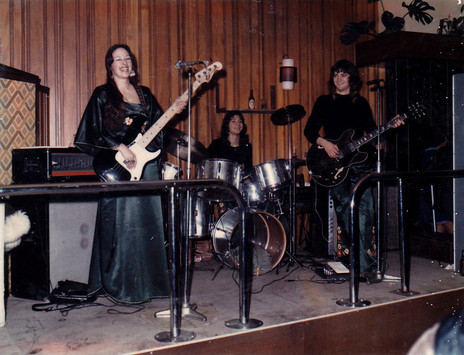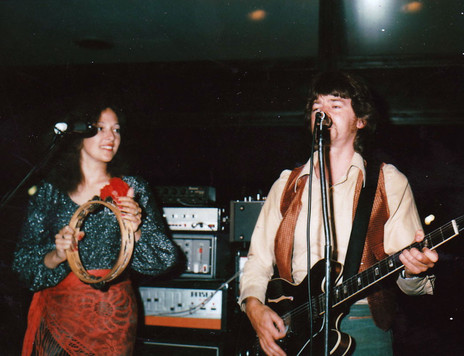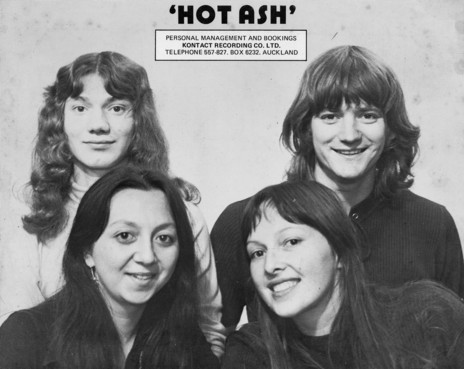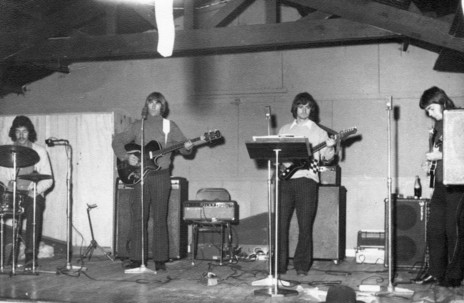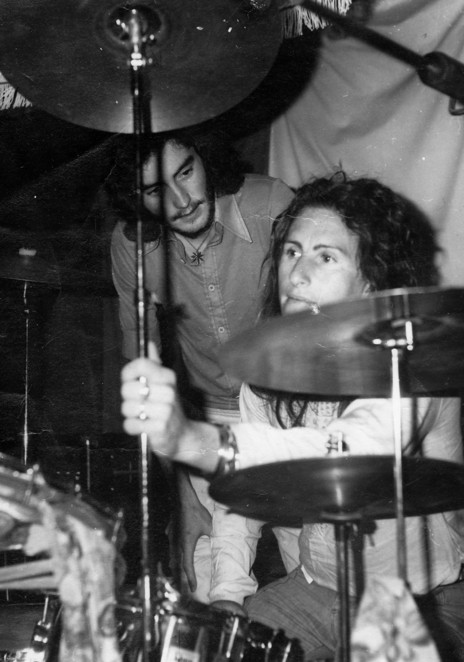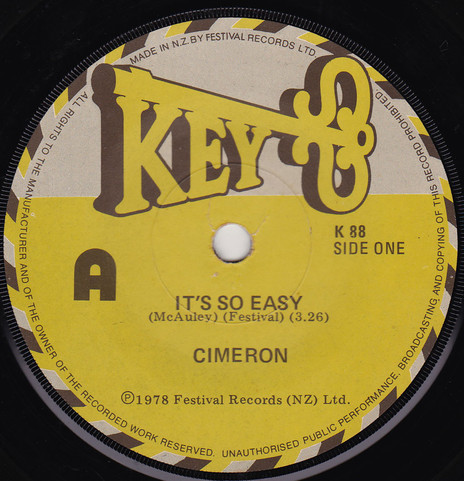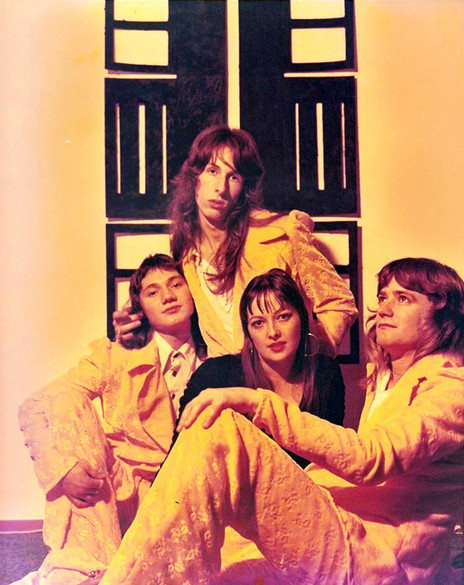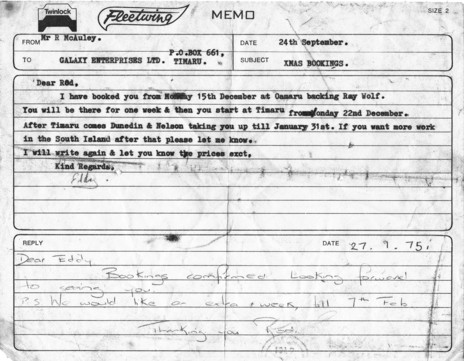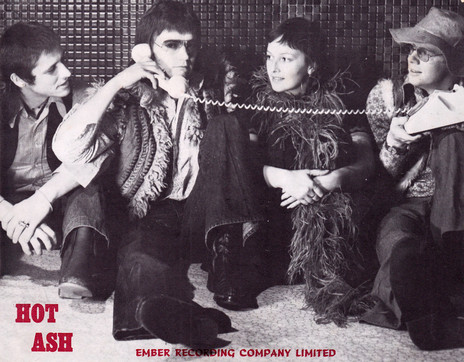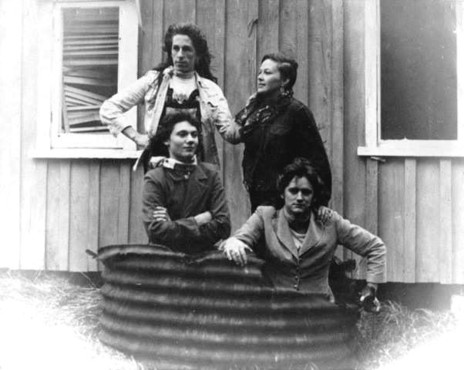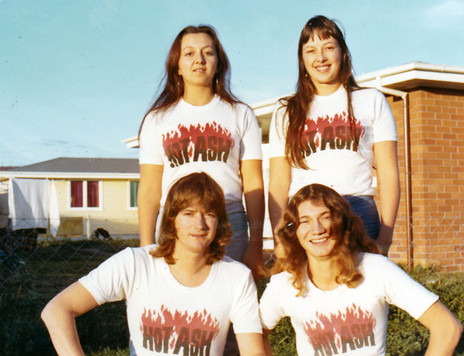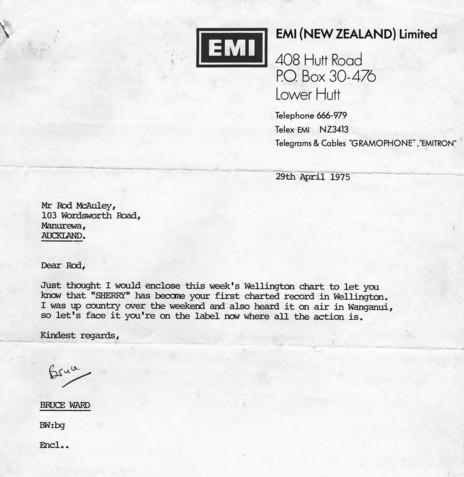For the next five years Hot Ash toured New Zealand and released four self-financed and self-produced singles, including the last record issued on the Zodiac label. By 1978, Rod and Pauline were a duo, changing their name to Cimeron for one last single before leaving the road for good.
Young Rodney McAuley had learned piano, piano accordion and violin while at Papatoetoe West School and even began writing his own music as an eight-year-old. When his piano teacher discovered a pop song he’d written she admonished him, reminding him of the money his mother was spending to have him learn music.
In the mid-1960s, McAuley joined his first band. He used to cut across a nearby property to find golf balls at the Grange golf course in Papatoetoe and on more than one occasion would pause at the window to listen to Māori guitarist Hardie Te Whata play along note-for-note with LPs by The Shadows on his record player.
McAuley bought a Teisco bass from an Otahuhu second-hand store and converted a valve radio with a 12-inch speaker into an amplifier.
After noticing him numerous times, Te Whata suggested the youngster get a bass guitar and that he would teach him to play. McAuley bought a Teisco bass from an Otahuhu second-hand store and converted a valve radio with a 12-inch speaker into an amplifier. The beauty of that was he could put the radio onto a station and practise to it.
Te Whata taught McAuley his repertoire of Shadows numbers and a couple of instrumentals he’d written. Adding McAuley’s brother Brian on drums, they named themselves The Brothers and performed for dances at the town halls in Papatoetoe and Manurewa.
The band played rarely so it didn’t take much coercing for Rod to jump ship and join a friend’s band that was getting work and playing some original music. He graduated to a Jansen Telstar bass and a Jansen Bassman amp and they became The Roliks (an acronym for the members’ first names).
When The Roliks and their contemporaries The Pioneers broke up, McAuley and Chris Gunn formed Summer Wine. The band lasted four years, specialising in four-part harmonies, and along the way McAuley swapped to guitar.
Meanwhile, he spied Pauline Howearth on the train one day in 1966 and vowed she would one day be his wife. They were married in June 1968, the same month Summer Wine appeared on Happen Inn. Pauline was one of 13 children from a musical family. Her multi-instrumentalist father at one time passed up the chance to play with The Howard Morrison Quartet, declaring it wasn’t a real job.
Rod left Summer Wine when the couple started having children. He needed to be in a band that was making more money, although he did decline an invite to join The Dallas Four because the straight-laced McAuleys were worried the band “might be on drugs”. He spent less than a year in The Moments with London-born guitarist Chris Turner.
In 1972, Rod, Tony King and singing brothers Paul and Mark Town-Treweek (of The Latin Quarter) formed an in-between band called Tramp who competed on the NZBC’s Studio One New Faces segment in 1972 and released the single ‘Don’t Believe’ b/w Rod’s ‘Passing The Time Away’ on the Family label. Tramp’s drummer was Gordon Joll.
An apprentice fitter and turner with Repco, Joll bought a cheap Yamaha drum kit when he started work and would practise in his lounge to Beatles and Rolling Stones records. He formed a band with his workmates called Methylated Sandwich, specialising in Stones covers.
Running in unison with Tramp, McAuley was part of another band that never really settled on a name although he had quite liked the suggestion Hot Ash made by bass guitarist Joe Allen. The band was completed with guitarist Larry Patuwai and drummer Lance Bentley.
By now a father of three working by day at Houston’s Music Centre in Otahuhu, McAuley decided he would come good on his threat to teach his wife Pauline to play bass guitar when a lightweight Beatles bass came into the shop. He bought it and the couple rehearsed daily.
Retaining Lance Bentley from Rod’s previous band, Hot Ash was born, working up a repertoire of Doobie Brothers and other popular rock music of the period as well as Rod’s burgeoning song catalogue.
For their first gig, a private function, Rod hired former Tramp bass player Paul Nickless to play three sets and have Pauline do the other. Nickless remained with diminishing responsibilities for two more weeks until Pauline had the entire repertoire down.
But then Bentley, much in demand, decided to move on. Rod took the advice of musician mates Jim Joll and Paul Town-Treweek and hired the relatively inexperienced Gordon Joll, ex-Tramp. He also enlisted Pauline’s sister Marcia Howearth on organ. At a time when women playing instruments in a band were rare, here were two in the one group.
An interview was set up at the White Horse Inn at Pakuranga and McKee signed Hot Ash.
Before long a friend of the band encouraged Kontact Records owner and promoter Dave McKee to have a look at this new act. An interview was set up at the White Horse Inn at Pakuranga and McKee signed Hot Ash.
Their first single ‘Where It’s Leading To’ b/w ‘Thru The Night’ was recorded at Mascot Studios and released on Kontact in 1973. ‘On Your Way Home’ b/w ‘Passing The Time Away’ (also the flip side of the Tramp single) were recorded at Stebbing Recording Centre and followed in early 1974.
That February, Hot Ash took part in the Auckland Festival’s Rock Marathon competition and were one of only two bands that did their own material. The other, Dragon, won top prize although their singer Marc Hunter revealed he thought Hot Ash should have. The runners-up were a blues covers band called Drut (apparently so named as it was ‘turd’ spelled backwards).
When Marcia Howearth left, guitarist Larry Patuwai, who had played with Rod McAuley prior to Hot Ash, replaced her part-time. The band cut ties with Dave McKee when he implied to TV producers that Rod’s song ‘Take The Time’ had been co-written with Kontact labelmate Angela Ayers, who was to sing it on a song contest.
By virtue of recording at Stebbing Recording Centre, their next single – ‘What A Day’ b/w ‘Feel It’ – was released on Eldred Stebbing’s Zodiac label in 1974. It was the last 7” single released on the label before Stebbing launched his own Key imprint.
They began working for Lion Breweries entertainment manager Ernie Garnier, performing on their own around the country or sometimes backing solo singers including Angela Ayers, Ray Woolf, Suzanne Prentice, and from Australia, Jeff St John. It wasn’t uncommon to turn up at a circuit venue to find the 200-watt Gunn or Jansen supplied PA bereft of most of the speakers in the quad boxes.
After Rod saw Tom Sharplin & Graffiti play one of their final gigs, he invited their singing piano player, Ritchie Pickett, to join Hot Ash. When they weren’t on the road, Pickett moved in with the McAuley family and Hot Ash held down five nights a week and a Saturday afternoon at the Thoroughbred Tavern in Takanini.
On occasion, Rod and Pauline’s three daughters would join the band on the road, as well as Pauline’s brother Peter Howearth, who would babysit. Luckily the children weren’t with them for one trip south when their clapped-out Holden hit an icy patch near Tokoroa and rolled. A helpful forest worker in a four-wheel drive righted the car, Rod popped the dented roof out and they continued on their journey, gigging that night.
For their next single, Hot Ash recorded a rocked up version of The Four Seasons’ 1962 hit ‘Sherry’, a live favourite due to Rod’s falsetto lead vocal. The flip side was ‘Take The Time’ and Rod approached EMI to release it. For part of the subsequent South Island tour, they used substitute drummer Brendon “Zak” Harper (who had been with Rod in Summer Wine) when Gordon Joll cut his arm and the tendons to his thumb in a bizarre glazing accident.
The constant travelling in close confines saw Ritchie Pickett’s mischievous personality and effortless sarcasm begin to wear thin and when he left Hot Ash continued as a trio. Pickett re-formed Graffiti before being invited to join prog rock band Think.
Gordon Joll had fallen in love and was tiring of the road. When he handed in his notice to join his brother Jim Joll’s band in early 1977, Hot Ash recruited Paul Ewing. But promoter Benny Levin took over Hot Ash’s management and told Rod McAuley that Ewing wasn’t good enough and to get rid of him. He duly did, enlisting his old Summer Wine bandmate Zak Harper.
Former Tramp singer and guitarist Mark Town-Treweek was added and, along with the new line-up, the McAuleys formed their own Ember Recording Company, although nothing was to come of it. One-time NuSonics drummer John McGowan also joined for a time.
Flamboyant former Noazark and Graffiti drummer Jon Drinkwater graced the final version of Hot Ash before Rod and Pauline McAuley struck out as a duo under the name Cimeron.
They used backing musicians – Pauline’s brother Peter Howearth (bass), Barry Welsh (guitar) and Lance Bentley (drums) – when they were working in Auckland but backing tapes recorded by Gordon Joll and bass guitarist Trevor Judge, by now in-demand session players, with Pauline on Polymoog when they were out of town.
In 1978, Cimeron released the single ‘It’s So Easy’ b/w ‘Take The Time’, produced by Rob Aickin on Eldred Stebbing’s Key label. Although he would never find out, the McAuleys wrote the song about an incident involving their former Hot Ash bandmate Ritchie Pickett. “It’s so easy to be kind/ It costs you nothing/ It ain’t just a line/ It’s so easy if you try/ Truth and kindness you can’t buy.”
Cimeron appeared on Radio With Pictures and recorded nearly an album’s worth of material with Aickin at Stebbing, but after Key split with its local distributor Festival, Stebbing put the project aside.
After a three-week South Island tour soon after, Cimeron was also put aside. Rod and Pauline’s children were growing up and they felt they needed to remain in Auckland, so formed Chalice with bass guitarist Robin Large and drummer Doug Harvey, future Lotto presenter.
During the 1980s, they set up Reel Vision Recording Studios in Manukau and recorded the likes of Ardijah, Dave Parker and Deane Waretini. When Waretini couldn’t pay his bill, Prince Tui Teka turned up in his Rolls-Royce and wrote the McAuleys a cheque.
In 1986, Rod and Pauline McAuley put themselves through university and moved to Australia in 1989. They now live in Brisbane, where Rod is still writing and recording in his home studio and Pauline owns a psychology business and is an author and international speaker.
